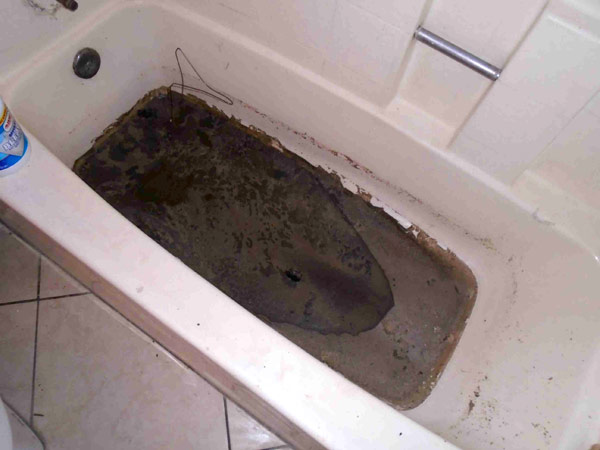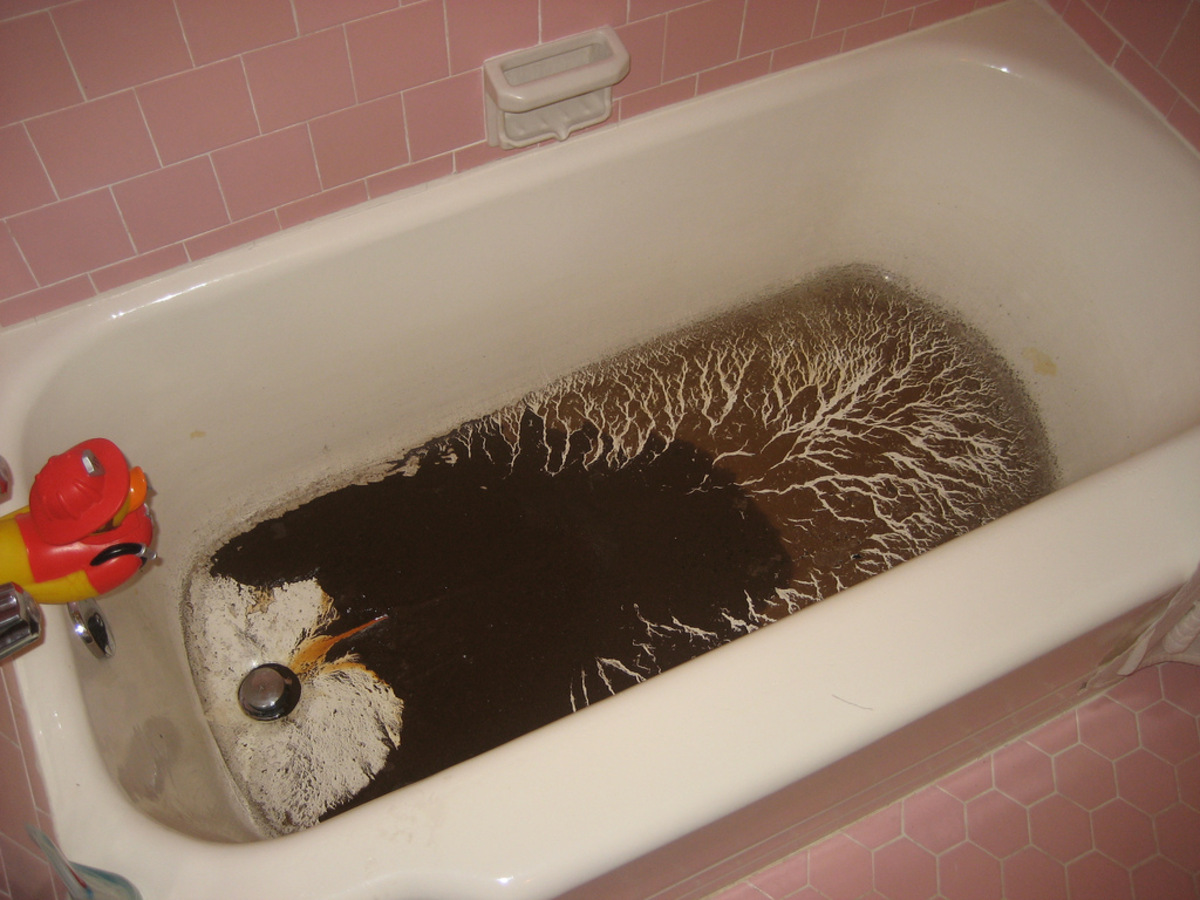Do you find yourself looking for details around Why is Sewage Backing Up Into My Bathtub??

Sewage back-up in the bathtub can be an upsetting and unhygienic trouble for any kind of homeowner. Not only is it inconvenient, but it likewise postures significant wellness threats and shows underlying problems with the plumbing system. Comprehending why sewage is coming up via the tub is critical for taking ideal action to attend to the trouble efficiently.
Introduction to the Concern
Understanding the Issue
When sewage draws back up into the tub, it's a clear sign of a trouble with the drainage system. The wastewater that must be streaming away from your home is instead discovering its back into your home, which can result in considerable damage and health hazards.
Prospective Reasons
Several variables can add to sewage back-up in the tub. From obstructions in the sewage system line to concerns with the plumbing infrastructure, determining the root cause is vital for discovering a service.
Usual Reasons for Sewer Back-up
Blockages in the Sewer Line
One of the most common sources of sewage back-up is a clog in the drain line. This can occur because of the accumulation of debris, grease, or foreign objects in the pipes, preventing appropriate circulation and triggering sewer to support into your bath tub.
Tree Origin Breach
Tree roots looking for moisture and nutrients can infiltrate drain lines with small cracks or joints. Over time, these roots can expand and broaden, creating considerable damage to the pipes and leading to sewage backup issues.
Aging Framework
Older homes may have outdated plumbing systems that are much more prone to corrosion, cracks, and degeneration. As pipes age, they come to be more prone to leakages and blockages, raising the chance of sewage backup incidents.
Heavy Rainfall or Flooding
During durations of heavy rainfall or flooding, the sewer system may come to be overwhelmed with excess water, triggering back-ups and overflows. This can lead to sewage supporting into bathtubs and other components inside the home.
Health Threats Connected With Sewer Back-up
Contamination of Water
Sewer back-up can contaminate the water supply in your home, presenting a major health and wellness danger to you and your family members. Exposure to contaminated water can lead to gastrointestinal issues, skin infections, and other ailments.
Spread of Illness
Sewer includes hazardous germs, viruses, and bloodsuckers that can create a series of diseases, including hepatitis, cholera, and gastroenteritis. Coming into contact with sewage or polluted surface areas puts you at risk of infection.
Mold and mildew Growth
Dampness from sewage back-up can develop perfect problems for mold growth in your house. Mold and mildew spores can intensify breathing troubles and trigger allergies in delicate individuals, making punctual cleanup essential.
Indications of Sewage Backup
Foul Odors
Undesirable smells rising from drains or fixtures, especially in the shower room, might suggest sewage back-up concerns. These smells are commonly strong and consistent, signifying a trouble that needs immediate interest.
Slow Draining Fixtures
Bathtubs, sinks, and commodes that drain gradually or not in all could be experiencing sewer backup. If several components are affected all at once, it's likely that the problem stems from a typical point, such as the primary sewer line.
Gurgling Sounds
Strange gurgling or bubbling sounds originating from drains pipes when water is running elsewhere in your house are indicative of air caught in the plumbing system. This air build-up can arise from sewage back-up and need to be explored without delay.
Immediate Actions to Take
Turning Off Water System
In the event of sewer backup, it's necessary to turn off the water to avoid more contamination and damage. Situate the major water shutoff valve in your home and closed it off up until the problem can be fixed.
Speaking To a Specialist Plumber
Managing sewage backup is not a DIY work. Get in touch with a qualified plumber with experience in dealing with sewage-related concerns to evaluate the circumstance and perform needed repair work or cleanings.
Staying Clear Of Contact with Polluted Water
Up until the sewer backup is dealt with, stay clear of contact with infected water to avoid the spread of microorganisms and virus. Wear safety equipment if you have to remain in the afflicted area and wash your hands thoroughly later.
Preventive Measures
Regular Maintenance of Sewer Lines
Schedule routine evaluations and maintenance of your drain lines to determine and attend to possible issues before they intensify right into major problems. This can include cleaning particles, examining for tree origin intrusion, and fixing any kind of broken pipelines.
Setting Up Backwater Valves
Think about mounting backwater shutoffs in your plumbing system to avoid sewage from flowing back into your home throughout periods of heavy rainfall or flooding. These shutoffs immediately close when water draws back up, protecting your residential or commercial property from contamination.
Proper Disposal of Home Waste
Avoid flushing anything apart from bathroom tissue and human waste down the bathroom to prevent clogs and clogs in the sewage system line. Dispose of grease, oil, and various other house chemicals effectively to lessen the risk of plumbing issues.
Tidying up After Sewer Backup
Disinfection Procedures
Extensively disinfect and disinfect affected locations after sewer back-up to remove unsafe microorganisms and protect against mold development. Use proper cleaning items and safety equipment to make certain secure and effective cleaning.
Reconstruction of Impacted Locations
Repair any kind of damages to flooring, wall surfaces, or fixtures triggered by sewage backup. Depending on the degree of the damage, you might need to change carpets, drywall, or various other materials to recover your home to its pre-loss problem.
Why Is Water Backing Up in My Bathtub When I Flush My Toilet?
What to do about a sewer line clog
First, don’t bother with plunging. No amount of plunging will dislodge the clog in a sewer line. The clog is too far away. Plungers are for clogs in the toilet itself, not the sewer line. Plus, the most likely causes of a sewer clog are:
Tree roots Flushed toys or feminine products Grease buildup Those items don’t move easily. And in the case of tree roots, the roots need to be cut out of the pipe and the pipe will need to be repaired.
You’ll need a closet auger. A closet auger is a type of plumber’s snake with a protective cover to keep from scratching the delicate porcelain toilet. If the clog is further down, you may need to remove the toilet or use one of your cleanouts to get to the clog.
We also recommend doing a video inspection of the drain to ensure that the cause of the clog has been completely removed. Otherwise, you could have the same problem again in a few days or weeks.
https://mspplumbingheatingair.com/blog/why-is-water-backing-up-in-my-bathtub-when-i-flush-my-toilet

Do you enjoy more info about What to Do if Sewage Starts Coming Up Through Your Bathtub? Place a remark directly below. We would be delighted to see your opinions about this blog. Hoping to see you back again soon. Enjoyed our blog? Please share it. Help other people check it out. We cherish reading our article about Why is There Sewage Coming Up Through the Bathtub.
Click Here